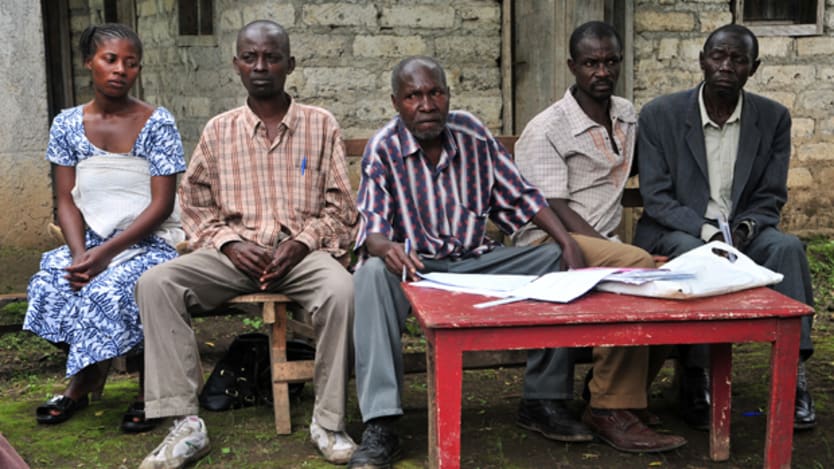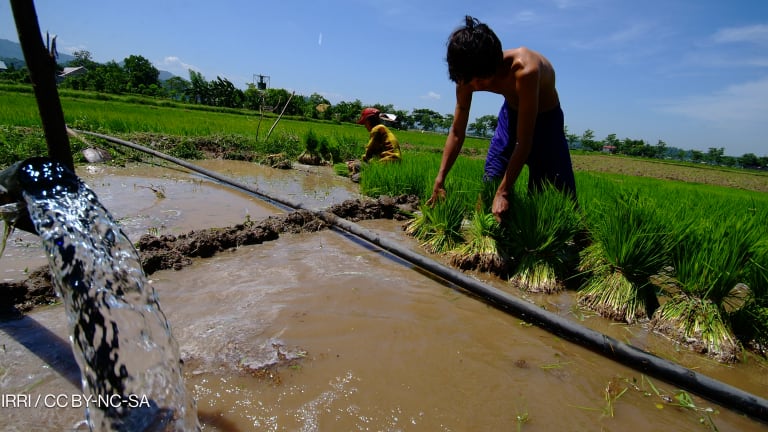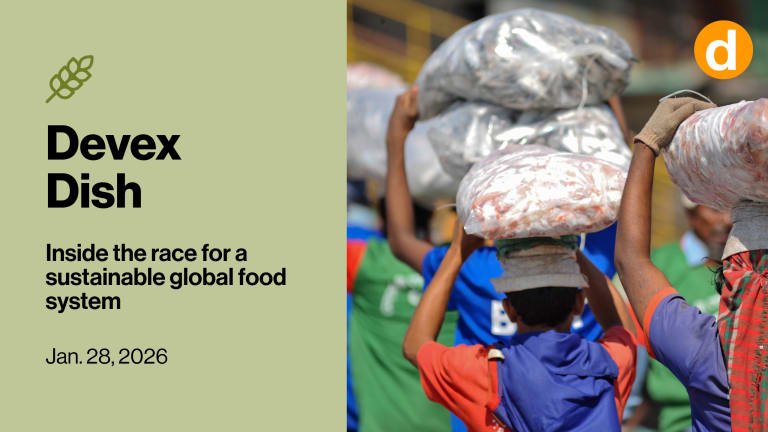
The Hunger Games, the famous multimedia franchise, is not far from the truth. It’s no myth that being food-secure is essential for human dignity and to ensure livelihoods and wellbeing.
Yet about 842 million people today live in chronic hunger across the world. Although on the decline, the numbers of the undernourished also continues to remain exorbitantly high. Of these, women and girls remain most affected.
The failure to ensure women’s access to nutritious food has an impact on nutrition for children under five years of age, leading to the loss of lives and cognitive or developmental limitations for those who survive. In many cases, the food-insecure and hungry continue to suffer in silence without a voice to appeal for more equality and fairness in the distribution of resources that would alleviate their plight.
See more #FeedingDev articles:
• The struggling African farmer recast as enterprising entrepreneur
• Linking up for a food-secure world
• Bricks and ladders: Integrating smallholder farmers into value chains
Without a doubt, women are key to food security. Globally, women comprise about 43 percent of the agricultural labour force. Their dedication to both food and cash crops is high, although the returns realized from the market favor men more than women. The African Development Bank estimates that 90 percent of Africa’s food is produced by women in spite of the fact that few women hold titles to the land they work. Because of this, rural women’s contribution to Africa’s agriculture is important for the persistence and success of their families, communities and local and national economies, and to poverty reduction and sustainable development.
In spite of the catalytic role they play, women remain largely invisible. Rural women face restricted access to productive resources such as land, agricultural inputs, finance and credit, extension services and technology, which in turn limits their agricultural output. They face more difficulties than men in gaining access to public services, social protection, employment opportunities and local and national markets and institutions due to cultural norms, institutional and social discrimination and security issues that restrict and circumscribe their access. For instance, fewer agricultural extension services are provided to female farmers than their male counterparts; in rural sub-Saharan Africa, women hold less than 10 percent of the credit available to smallholder agriculture.
Although rural women’s access to microcredit has progressed in recent years, microcredit volumes per person may help to reduce individual poverty, but it can hardly support the transformative changes required for women’s collective positioning as agricultural producers and rural entrepreneurs. Without land titles as collateral, women experience greater difficulty obtaining loans, and this further compromises women’s ability to add value to the agricultural chain, diversify and upscale their production.
Women’s participation in productive non-food activities, agricultural and otherwise, is also important in addressing one of the critical dimensions of food security: access to food. Women often lack access to the basics of farming as they face restrictions on their ability to buy or inherit land, save money through and borrow from a financial institution, or even sell their produce at a market. More rural women than their counterparts in urban areas lack access to markets. Poor transportation, among other challenges, often confines them to local markets in which they frequently cannot negotiate better prices for their goods. Also, gender differences in crop choice persist, with lucrative cash crops being largely “male crops” while crops for home consumption are seen as “female crops.”
It is true that, as the World Bank puts it, “Most women farmers are smallholders who cultivate traditional food crops for subsistence and sale, whereas men are more likely to own medium to large commercial farms and are better able to capitalize on the expansion of agricultural tradable goods. Farms managed by women are generally characterized by low levels of mechanization and technological inputs, which often translate into low productivity.”
Poor rural women can work as many as 16 to 18 hours per day, doing farm work as well as handling all their domestic responsibilities, whereas men typically work less and have more time to engage in other income-generating activities, leisure or community politics.
Indeed, the burden of unpaid care work further limits women’s ability to take advantage of on- and off-farm employment and new market opportunities in the agricultural sector. For instance, eight out of 10 people without access to an improved drinking water source live in rural areas, and it is most often women and girls who are tasked with fetching water.
Furthermore, the inadequate provision of key infrastructure such as energy, water and sanitation facilities has a disproportionate impact on low-income women and girls living in rural areas in the developing world. Studies indicate that in Sub-Saharan Africa, for instance, 71 percent of the burden of collecting water for households falls on women and girls, who in total spend 40 billion hours a year collecting water, equivalent to a year’s worth of labor by the entire workforce in France.
Join the conversation with our LinkedIn group!
It’s our responsibility, as a global community, to advance women’s economic empowerment in agriculture by securing women’s livelihoods and rights and renewing commitments to poverty eradication and sustainable development. In this regard, together with the three Rome-based food agencies — the Food and Agriculture Organization, International Fund for Agricultural Development and World Food Program — U.N. Women is making a significant leap in this direction by addressing rural women’s challenges across the world by focusing on four priorities: improved food and nutrition security, increased income to secure their livelihoods, enhanced leadership and participation in rural institutions and in shaping laws, policies and programs, and strengthening gender-responsive policy environments for the economic empowerment of women in agriculture.
We hope that through partnerships such as these, and as the world prepares for the upcoming Committee on Food Security Conference in Rome this November, our efforts are strengthened and consolidated for food-secure women and girls, and for a more food- and nutrition-secure world.
Want to learn more? Check out Feeding Development's campaign site and tweet us using #FeedingDev.
Feeding Development is an online conversation hosted by Devex in partnership with ACDI/VOCA, Chemonics, Fintrac, GAIN, Nestlé and Tetra Tech to reimagine solutions for a food-secure future from seed and soil to a healthy meal.








